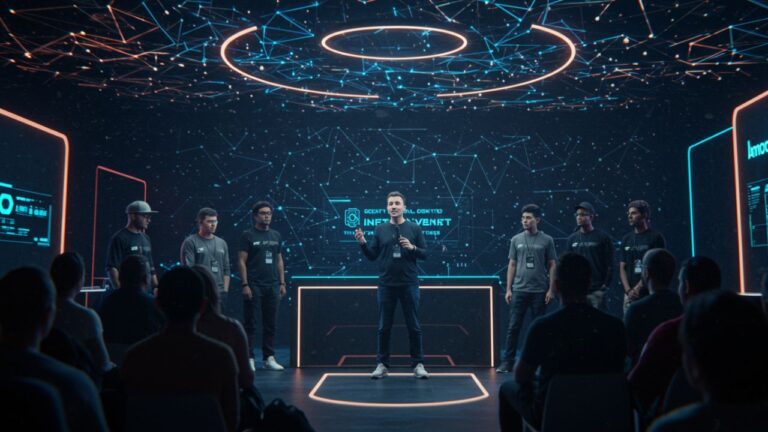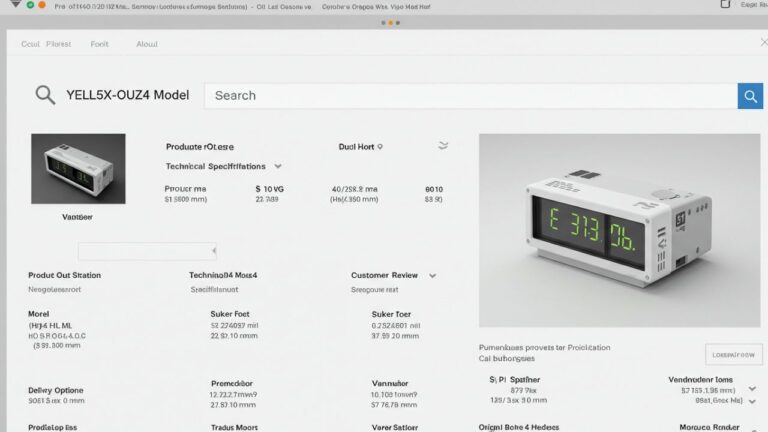
MLXHomeDepot
Introduction to a Revolutionary Concept
MLXHomeDepot represents a groundbreaking fusion of artificial intelligence with traditional home improvement retail, creating unprecedented shopping experiences for customers nationwide. This innovative platform leverages machine learning algorithms to personalize recommendations and streamline the purchasing process for everything from power tools to kitchen cabinets. Furthermore, the technology recognizes individual customer preferences through previous purchase histories and browsing patterns to anticipate future needs. The company has already transformed how millions approach home renovation projects by offering tailored guidance and support throughout each customer’s journey.
The Genesis of MLXHomeDepot
The concept for MLXHomeDepot emerged from recognition of persistent customer frustrations with traditional home improvement shopping experiences in early 2021. Founders Jamie Chen and Marcus Rodriguez previously worked at leading tech companies before identifying opportunities to apply artificial intelligence within the home improvement sector. Moreover, they noticed customers frequently felt overwhelmed by product choices without sufficient guidance tailored to their specific projects. Their initial prototype focused on simplifying decision-making processes through ML-driven recommendations that accounted for project scope, budget limitations, and skill level.
Technological Framework Behind the Innovation
MLXHomeDepot built its foundation on sophisticated neural networks designed specifically for understanding complex relationships between home improvement products and project requirements. The proprietary algorithm processes thousands of product specifications against customer preferences with remarkable speed and accuracy unknown in traditional retail environments. Additionally, natural language processing allows the system to interpret conversational queries rather than requiring specific technical terminology. Computer vision components enable customers to upload images of their spaces to receive appropriate product suggestions that match existing aesthetics.
Transforming the Customer Journey
Shopping for home improvement products has evolved dramatically since MLXHomeDepot launched its first integrated retail location in Seattle. Customers can now consult interactive kiosks throughout stores that provide instant access to personalized recommendations based on their project profiles. Furthermore, the mobile application extends this experience beyond physical stores by allowing users to scan existing items for matching accessories. The technology remembers previous paint colors, fixture styles, and material preferences to maintain consistency across multiple projects over time.
Data-Driven Personalization in Practice
The intelligence behind MLXHomeDepot grows more sophisticated with each customer interaction, learning from millions of completed projects to improve future recommendations. The system recognizes patterns such as seasonal project timing and regional preferences that might escape human observation in traditional retail environments. Meanwhile, individual user profiles develop increasing accuracy by incorporating feedback from completed purchases and project outcomes. The platform can distinguish between weekend DIY enthusiasts and professional contractors, adjusting recommendations accordingly for appropriate skill levels.
Enhancing Professional Contractor Services
Professional contractors have embraced MLXHomeDepot for its ability to streamline project estimation and material procurement processes through specialized tools. The contractor portal predicts material quantities based on project specifications, reducing costly overages or time-consuming shortages during critical project phases. Additionally, the system synchronizes with popular project management software to integrate procurement timelines with construction schedules. Job-specific pricing models automatically calculate appropriate discounts based on order volume and relationship history within the contractor program.
Revolutionizing DIY Project Planning
Weekend warriors and DIY enthusiasts benefit from MLXHomeDepot’s detailed project guides that adjust instructions based on individual skill levels indicated through profile information. The platform breaks complex renovations into manageable tasks with appropriate tool recommendations for each specific step in the process. Moreover, augmented reality features allow users to visualize finished projects within their actual spaces before purchasing materials. The system estimates project completion times based on similar projects undertaken by users with comparable experience levels.
Sustainable Home Improvement Integration
MLXHomeDepot has positioned sustainability as a core component of its recommendation engine by highlighting eco-friendly alternatives alongside traditional materials. Users can specify environmental priorities within their profiles, prompting the system to suggest products with appropriate certifications and environmental performance metrics. Furthermore, energy efficiency calculators demonstrate potential utility savings from suggested upgrades to encourage more sustainable choices. The platform tracks embodied carbon across product categories to help environmentally conscious consumers make informed decisions about their renovation materials.
Inventory Management Innovation
Retailers partnering with MLXHomeDepot benefit from predictive inventory systems that accurately forecast regional demand patterns based on weather predictions and local economic indicators. The technology has reduced overstock situations by 37% while simultaneously decreasing stockout events that frustrate customers and delay projects. Additionally, distribution centers utilize AI-optimized routing to ensure products reach stores efficiently before anticipated demand spikes. The system recognizes early indicators of emerging trends through search pattern analysis months before traditional forecasting methods would detect changes.
Customer Support Enhancement
Traditional home improvement questions now receive responses from MLXHomeDepot’s virtual assistants that combine comprehensive product knowledge with unprecedented personalization based on individual project contexts. The support system can retrieve specific details from previous purchases when troubleshooting issues without requiring customers to locate receipt information. Moreover, the platform recognizes when questions exceed automated capabilities and seamlessly transfers interactions to human specialists with relevant expertise. The continuous learning algorithm improves response accuracy through analysis of successful resolution patterns across millions of support interactions.
Pricing Strategy and Market Positioning
MLXHomeDepot implements dynamic but transparent pricing models that balance competitive market positioning with personalized value offerings for different customer segments. Loyal customers receive customized promotions aligned with their project histories rather than generic sales that may not address their specific needs. Furthermore, the system identifies complementary product bundles that offer genuine value rather than forcing unnecessary purchases through traditional upselling techniques. Price sensitivity analysis ensures recommendations respect budget constraints indicated through browsing patterns and explicit project parameters.
Integration with Smart Home Technology
The expanding smart home market has found natural alignment with MLXHomeDepot’s technology through seamless integration with popular home automation platforms and voice assistants. Customers can check product compatibility with existing smart home ecosystems before purchasing new additions to their connected environments. Additionally, the platform suggests appropriate upgrades when detecting outdated components that might limit functionality of newer smart devices. The recommendation engine considers network requirements and protocol compatibility when suggesting connected home products.
Mobile Application Capabilities
MLXHomeDepot’s mobile application extends the intelligent shopping experience beyond physical retail locations through features designed specifically for on-site project management. Users can scan existing fixtures to identify compatible replacement parts without removing components or searching through technical documentation. Furthermore, augmented reality measuring tools ensure accurate dimensions when ordering custom materials like countertops or cabinetry. The application serves as a digital assistant throughout projects by providing just-in-time instructions when users access information from project locations.
Learning from Customer Feedback Loops
Continuous improvement drives MLXHomeDepot’s development through sophisticated feedback mechanisms that capture detailed project outcomes rather than simple satisfaction ratings. The platform analyzes which recommended products actually get purchased and installed together across thousands of similar projects to refine future suggestions. Moreover, completion photos submitted by users train computer vision algorithms to better understand real-world application contexts beyond manufacturer specifications. The system identifies potential installation challenges by analyzing support requests associated with specific product combinations.
Partnerships with Product Manufacturers
Leading manufacturers have established deep integration with MLXHomeDepot’s platform to provide enhanced product data beyond standard specifications available through traditional retail channels. These partnerships enable detailed compatibility information and installation guidance specific to thousands of potential product combinations across different brands. Additionally, manufacturers receive anonymized feedback about how their products perform in real-world applications compared to competitors. The system helps identify emerging consumer preferences that can inform product development priorities for future manufacturing cycles.
Security and Privacy Considerations
MLXHomeDepot maintains rigorous data protection standards while balancing personalization benefits with appropriate privacy boundaries that respect customer preferences about information sharing. Users control granular permissions regarding which aspects of their project histories inform future recommendations across different product categories. Furthermore, the platform employs advanced anonymization techniques when analyzing aggregate trends to prevent individual identification. The company has established an external ethics advisory board to evaluate potential privacy implications of new features before implementation.
Expanding Market Presence
The initial success in metropolitan markets has driven aggressive expansion plans to bring MLXHomeDepot technology to suburban and rural communities previously underserved by advanced retail technology. Regional customization ensures the system understands local building codes and material preferences unique to different geographic areas. Moreover, the company has developed offline functionality for areas with limited connectivity to ensure consistent experience regardless of location. The expansion strategy prioritizes partnerships with established local retailers rather than displacing existing community businesses.
Financial Impact on the Industry
Retailers implementing MLXHomeDepot technology report significant improvements in key performance indicators including average transaction value and customer retention metrics across diverse market segments. The personalization engine has demonstrated particular success in increasing attachment rates for project-related accessories that customers might otherwise overlook during initial purchases. Additionally, reduced returns result from more accurate product recommendations aligned with actual project requirements and skill levels. The technology has shifted competitive dynamics from price-based competition toward experience-based differentiation.
Training and Implementation Considerations
Successful deployment of MLXHomeDepot technology requires comprehensive staff training programs that transform traditional sales roles into project consultation supported by artificial intelligence recommendations. Employees learn to interpret system suggestions while adding value through practical experience that complements algorithmic recommendations in meaningful ways. Furthermore, implementation teams work closely with retailers to integrate existing inventory systems with the new platform during phased rollouts. The company provides ongoing performance coaching based on interaction analysis between staff and the AI system.
Future Development Directions
MLXHomeDepot continues advancing its technological capabilities through research into predictive maintenance recommendations based on environmental conditions and installation quality factors. The development roadmap includes enhanced visualization tools that will simulate aging processes for different material choices over projected timespans. Additionally, the company explores integration with emerging technologies like 3D printing for custom parts that might otherwise delay project completion. The platform aims to incorporate sustainability lifecycle analysis for comprehensive environmental impact assessment of different renovation approaches.
Case Studies in Transformation
Several dramatic retail transformations demonstrate MLXHomeDepot’s impact, including a struggling regional chain that reversed declining sales through personalization strategies targeting specific customer segments. The technology identified underperforming product categories and suggested alternative inventory allocations based on local customer project patterns. Furthermore, analysis revealed previously unrecognized customer journey obstacles that simple store reorganization resolved through data-driven layout recommendations. The retailer subsequently reported 28% year-over-year sales growth after full implementation across all locations.
Professional Designer Collaboration
Interior designers and architects increasingly utilize MLXHomeDepot as a professional resource by incorporating the platform’s visualization tools into client presentations and material selection processes. The system helps professionals identify products matching conceptual designs across diverse supplier catalogues without extensive manual searching through disconnected resources. Moreover, the platform facilitates client collaboration through shared digital project boards that maintain consistent vision throughout complex renovations. Designers report significantly reduced procurement time while maintaining greater specification accuracy for complex projects.
Educational Content Integration
MLXHomeDepot extends beyond product recommendations through educational content that adapts to individual learning styles and project complexity requirements indicated through user behavior patterns. Video tutorials automatically highlight sections most relevant to specific project challenges based on user progress tracking. Additionally, the platform identifies knowledge gaps through subtle assessment of browsing patterns to suggest appropriate skill development resources. The educational approach focuses on building confidence through incremental challenges matched to growing capabilities.
Accessibility Considerations
Inclusive design principles guide MLXHomeDepot’s development through features ensuring people with disabilities can fully utilize the platform’s capabilities according to their specific home improvement needs. Voice navigation accommodates users with motor limitations while high-contrast modes assist those with visual impairments through thoughtfully designed interfaces. Furthermore, the recommendation engine can prioritize accessibility-enhancing products when user profiles indicate relevant requirements. The company consults regularly with disability advocates to identify improvement opportunities across the entire customer experience.
Final Thoughts: The Future of Intelligent Home Improvement
MLXHomeDepot represents merely the beginning of artificial intelligence integration within the home improvement industry, with ongoing development promising even more intuitive project support. Future iterations will likely anticipate household needs through predictive maintenance suggestions before homeowners recognize emerging issues themselves. Additionally, sustainability considerations will increasingly influence recommendations as environmental impact data becomes more comprehensive and accessible through the platform. The technology will continue evolving from simple product recommendation toward holistic home management systems supporting long-term property enhancement through intelligent planning.







